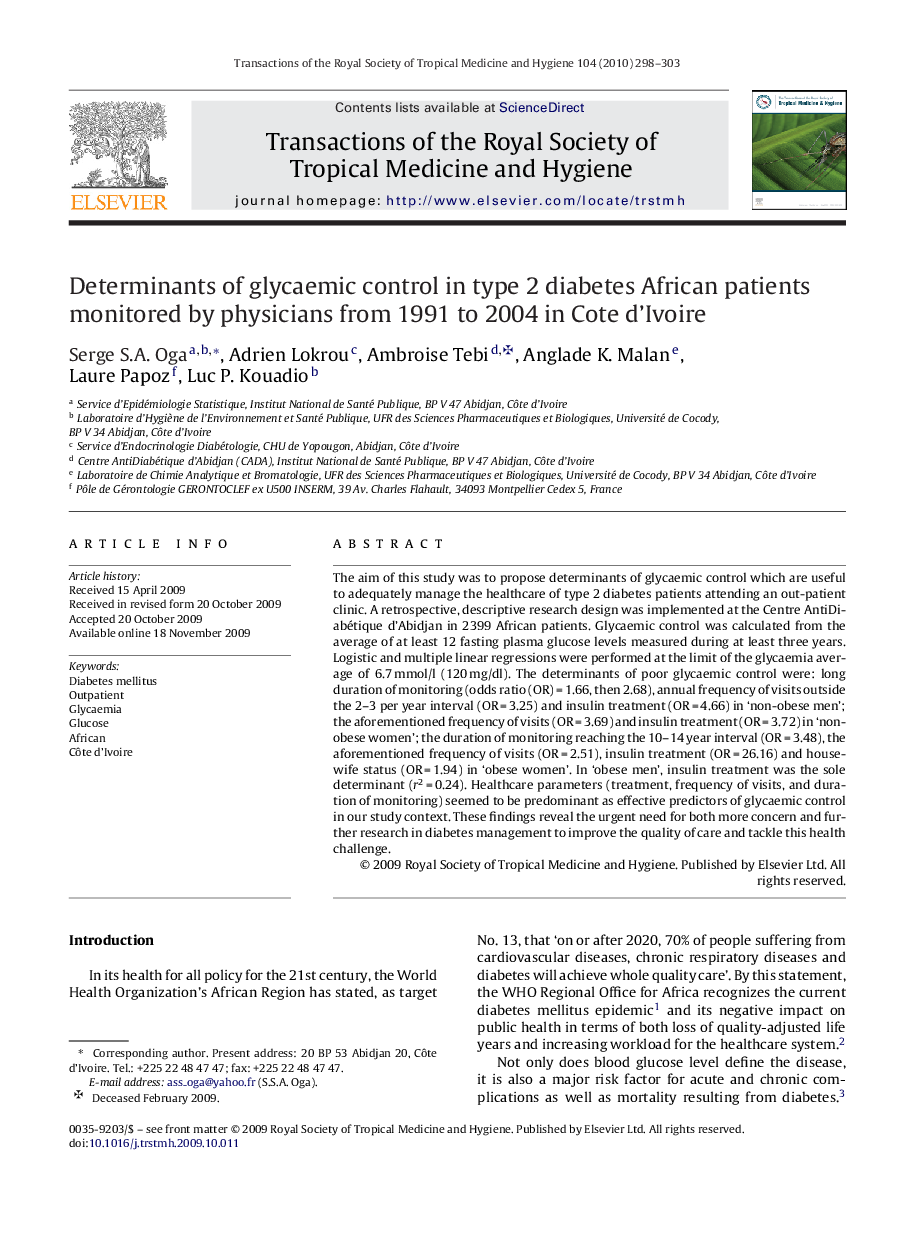| Article ID | Journal | Published Year | Pages | File Type |
|---|---|---|---|---|
| 3420692 | Transactions of the Royal Society of Tropical Medicine and Hygiene | 2010 | 6 Pages |
SummaryThe aim of this study was to propose determinants of glycaemic control which are useful to adequately manage the healthcare of type 2 diabetes patients attending an out-patient clinic. A retrospective, descriptive research design was implemented at the Centre AntiDiabétique d’Abidjan in 2399 African patients. Glycaemic control was calculated from the average of at least 12 fasting plasma glucose levels measured during at least three years. Logistic and multiple linear regressions were performed at the limit of the glycaemia average of 6.7 mmol/l (120 mg/dl). The determinants of poor glycaemic control were: long duration of monitoring (odds ratio (OR) = 1.66, then 2.68), annual frequency of visits outside the 2–3 per year interval (OR = 3.25) and insulin treatment (OR = 4.66) in ‘non-obese men’; the aforementioned frequency of visits (OR = 3.69) and insulin treatment (OR = 3.72) in ‘non-obese women’; the duration of monitoring reaching the 10–14 year interval (OR = 3.48), the aforementioned frequency of visits (OR = 2.51), insulin treatment (OR = 26.16) and housewife status (OR = 1.94) in ‘obese women’. In ‘obese men’, insulin treatment was the sole determinant (r2 = 0.24). Healthcare parameters (treatment, frequency of visits, and duration of monitoring) seemed to be predominant as effective predictors of glycaemic control in our study context. These findings reveal the urgent need for both more concern and further research in diabetes management to improve the quality of care and tackle this health challenge.
